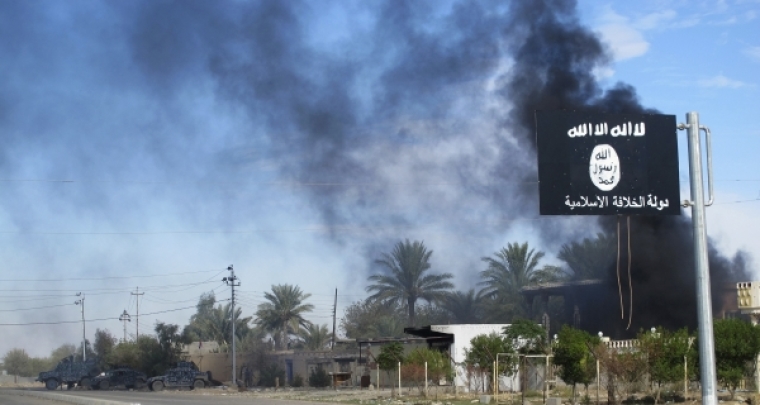

What can church history teach us about defeating militant Islam? And what can church history teach us about the church defeating itself?
This is the second article in a series exploring defeating militant Islam. The first article compared the gospel with militant Islam. What Jesus did was win an inner battle against sin to bring us peace with God. From this position we see victory also in the outer battle to defeat all powers opposing this love and grace.
The key point is that Jesus has already won the ultimate battle against militant Islam through His incarnation, atoning death and victorious resurrection. The result is there is no more war between the Christian and God because of Jesus.
Militant Islamic ideology has none of this. They wage war for their god. This war, they explain, helps earn their peace with God. There is no hope for justice. No full expression of love. In summary, no Jesus.
In this article I explore what church history teaches on weakening Islamic State.
Church history
Church history has shown repeatedly how divisions within the church can weaken the gospel. These divisions have come in schisms as well as internal conflict. They distract from the Great Commission. Whatever denomination you research you will see this conflict results in a weakening of the church's positive impact.
From 18th century Presbyterianism with its multiple divisions to current day Anglicanism, many of these divisions weakened these churches. Sometimes these internal conflicts are about safe-guarding gospel truths, such as the liberal/evangelical divide. But also many divisions are on more peripheral issues. And these take energy away from the central gospel mandate to seek and save what was lost. The result is the distracted church becomes weak and impotent.
Weaken militant Islam: A house divided against itself cannot stand
Applying this to militant Islam: the nature of Islam is built on division. While they don't technically have "denominations", they have different legal codes and beliefs about who has the true successor from their prophet Muhammad. Different schools of jurisprudence mean they have less unity and more conflict. This is evident in the tensions between Sunni and Shia, not to mention how both feel towards the more mystic Sufism.
These divisions weaken their impact. Church history explains that one of the best ways to defeat a cause is to dilute its power and convolute its vision through division. Church history gives tips to our governments, intelligence organisations and the media as to ways of weakening militant Islam through highlighting their divisions and different internal theologies.
Weakening the church
But there is a catch as church history has pointed out. A house divided against itself cannot stand. Both local churches and denominations are to remember the crippling effect of divisions. A church in conflict will be impotent. Conflict can cripple. So think clearly about how important an issue is before splitting a church. Church history yells this lesson loudly. If you want to see a church that lacks the Spirit's power, then find one with factions and divisive debates.
Strengthening the church
In saying this, it is also important to remember that God uses different denominations for His glory. There is a unity among all Christians: belief in Jesus coming to save His people from the penalty for sin. But within this unity God has allowed different denominations.
They are different parts of the one body of Christ. Each has different gifts and doctrinal emphases. And perhaps each denomination accommodates different personality types and those individual gifts. Yes, as mentioned there is the negative side that some denominations can over-emphasize certain doctrines or consider their views more correct. But God has allowed and uses each denomination for His glory.

From this view, division within militant Islam means defeat. But diversity within the Christian church can be a positive because it has a unity in what Jesus has done. And the proof is He defeated the ultimate enemy of sin and death. Militant Islam needs to be reminded of their divisions as well as this great victory offered in Christ.
Jeremy Dover is a former sports scientist and Pastor
Jeremy Dover's previous articles may be viewed at www.pressserviceinternational.org/jeremy-dover.html